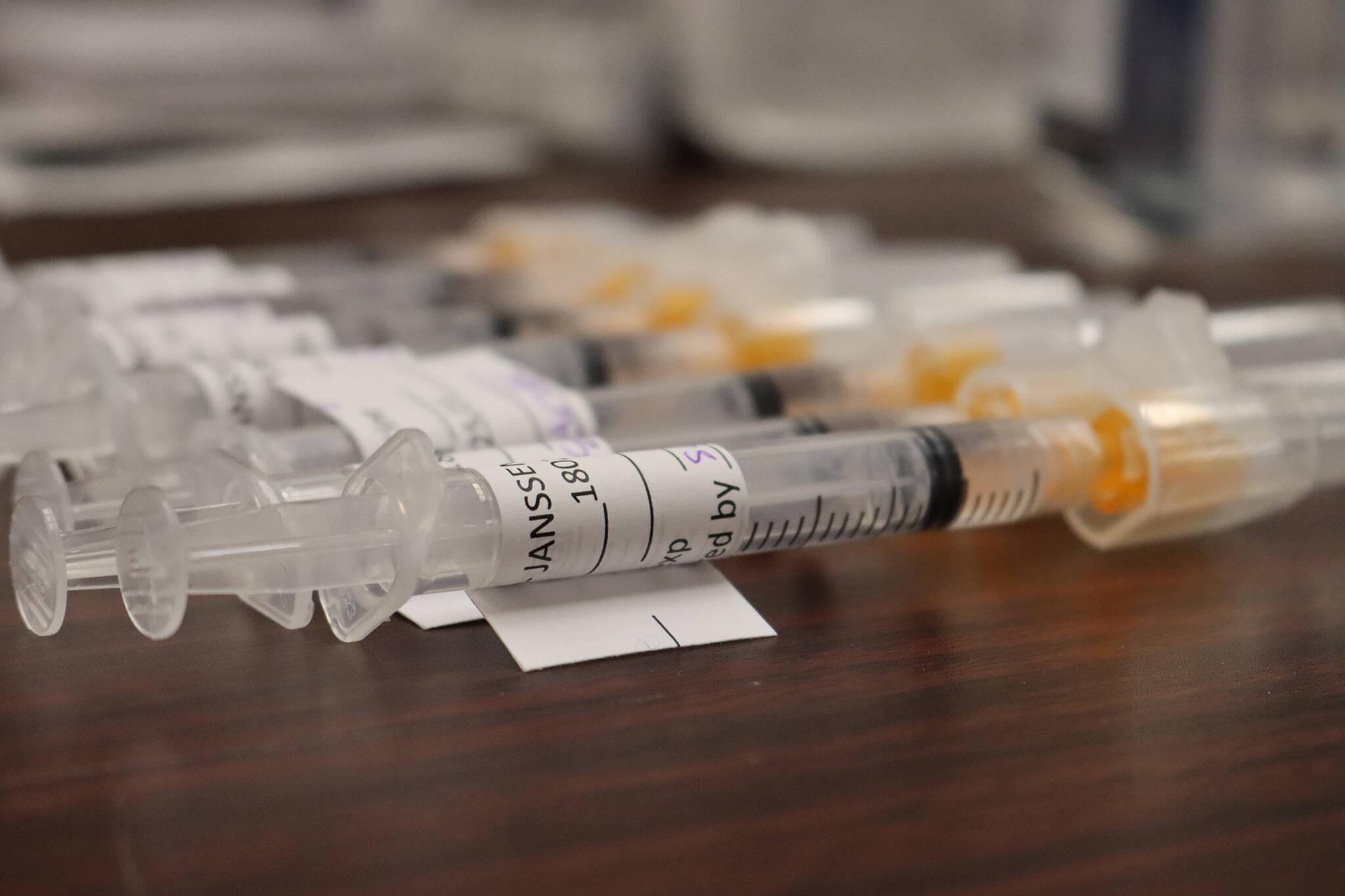The state of Alaska on Friday announced it joined nine other states in suing the Biden administration for mandating COVID-19 vaccines for federal contractors, several of which operate in the state.
Gov. Mike Dunleavy and Attorney General Treg Taylor said in a news release the mandates were unconstitutional and prohibited by Alaska’s laws. Alaska joins Arkansas, Iowa, Missouri, Montana, Nebraska, New Hampshire, North Dakota, South Dakota and Wyoming in the lawsuit.
The filing maintains that the contractor rule is ambiguous and inconsistent with other regulations and existing laws, the governor’s office said in a statement, and argues President Joe Biden overstepped his legal authority when he issued the order.
In the statement, Dunleavy called the mandates, “unamerican.”
The governor’s office declined to answer further questions on the decision.
In a Sept. 9, announcement, President Joe Biden said that all employers with more than 100 workers require them to be vaccinated or test for the virus weekly, affecting about 80 million Americans, according to the Associated Press. The roughly 17 million workers at health facilities that receive federal Medicare or Medicaid also will have to be fully vaccinated, AP reported.
The Biden administration is also requiring vaccination for employees of the executive branch and contractors who do business with the federal government — with no option to test out, which covers several million more workers, AP reported.
According to an April 2, report from U.S. Congressional Research Services, state and local vaccine mandates were both established as Constitutional in cases involving smallpox vaccines, but the federal government’s authority is subject to debate.
“Except in certain limited circumstances, including in the immigration and military contexts, no existing federal law expressly imposes vaccination requirements on the general population,” the CRS report says. “Certain existing authorities, however, could potentially form the basis of executive action in the context of the COVID-19 pandemic.”
[Dunleavy, Republicans, decry lack of special session action]
According to the report, Supreme Court precedent has supported state and local vaccine mandates —even ones that do not provide for religious or other exemptions — which the Biden administration’s mandate does in some cases. Mandates have generally survived legal challenge, the report says, because mandates generally do not require involuntary vaccination, but instead impose consequences on individuals who refuse to get vaccinated.
The report cites a 1922 Supreme Court Case, Zucht v. King, where parents of an unvaccinated child excluded from school because of her vaccine status violated the 14th Amendment’s equal protection clause.
In Zucht v. King, “the Supreme Court rejected the constitutional challenges, concluding that ‘it is within the police power of a State to provide for compulsory vaccination’ and that the ordinance did not bestow ‘arbitrary power, but only that broad discretion required for the protection of the public health.’”
Earlier this month University of Alaska Interim President Pat Pitney announced the university system would be mandating vaccines for employees in the future, but the policy was not yet implemented. Pitney said one of the reasons the announcement was being made was due to the university’s status as a federal contractor.
• Contact reporter Peter Segall at psegall@juneauempire.com. Follow him on Twitter at @SegallJnuEmpire.

